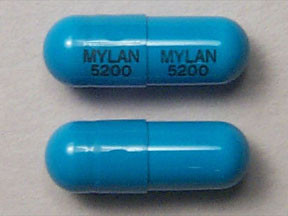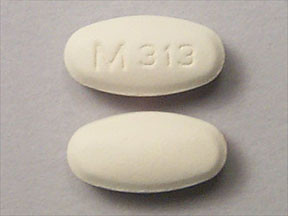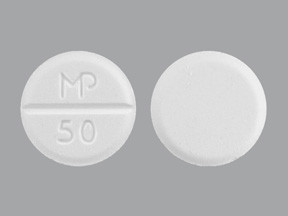TOLMETIN SODIUM - ORAL
PHONETIC PRONUNCIATION: (tole-MET-in SO-dee-um)
COMMON BRAND NAME(S): Tolectin
GENERIC NAME(S): tolmetin sodium
Uses
USES: Tolmetin is used alone or with other treatments to reduce pain, swelling, and joint stiffness from rheumatoid arthritis and osteoarthritis. It is also used for juvenile rheumatoid arthritis. If you are treating a chronic condition such as arthritis, ask your doctor about non-drug treatments and/or using other medications to treat your pain. See also Warning section. Tolmetin is known as a nonsteroidal anti-inflammatory drug (NSAID).
How to use TOLMETIN SODIUM - ORAL
HOW TO USE: Read the Medication Guide provided by your pharmacist before you start using tolmetin and each time you get a refill. If you have any questions, consult your doctor or pharmacist. Take this medication by mouth, usually 3 times a day with a full glass of water (8 ounces or 240 milliliters) or as directed by your doctor. Do not lie down for at least 10 minutes after taking this drug. If stomach upset occurs, take this medication with food, milk, or an antacid (except sodium bicarbonate). Dosage is based on your medical condition and response to therapy. To reduce your risk of stomach bleeding and other side effects, take this medication at the lowest effective dose for the shortest possible time. Do not increase your dose, take it more frequently, or take it for a longer time than prescribed. Discuss the risks and benefits with your doctor or pharmacist. Take this medication regularly in order to get the most benefit from it. To help you remember, take it at the same times each day. It may take 1-2 weeks of taking this drug regularly until you get the full benefit. Inform your doctor if your condition worsens or if you develop new symptoms.
Side Effects
Precautions
Interactions
Overdose
Images

- color
- light blue
- shape
- oblong
- imprint
- MYLAN 5200, MYLAN 5200
Reviews
Faq for TOLMETIN SODIUM - ORAL
Tolmetin sodium is a nonsteroidal anti-inflammatory drug (NSAID) that is used to reduce pain and swelling caused by conditions such as arthritis. It helps to relieve inflammation by blocking the production of certain substances in the body.
Take Tolmetin sodium exactly as prescribed by your doctor. It is usually taken with food to prevent stomach upset. Do not crush or chew the tablets, swallow them whole with a glass of water.
Common side effects of Tolmetin sodium may include stomach upset, heartburn, diarrhea, dizziness, headache, and drowsiness. If these side effects persist or worsen, consult your doctor.
The effectiveness of Tolmetin sodium varies from person to person. Some individuals may experience relief within a few hours, while others may take several days. It is important to follow your doctor's instructions and give the medication enough time to work.
Tolmetin sodium can interact with other medications and affect how they work. Inform your doctor about all the medications you are currently taking, including over-the-counter drugs, vitamins, and herbal supplements to avoid any potential drug interactions.
Tolmetin sodium may increase the risk of heart attack, stroke, and gastrointestinal bleeding. It is important to take the lowest effective dose for the shortest duration possible. Inform your doctor if you have a history of heart disease, high blood pressure, kidney or liver disease, asthma, or any other medical conditions.
Tolmetin sodium is not recommended during pregnancy, especially during the last trimester, as it may harm the unborn baby. It is also not recommended while breastfeeding, as it can pass into breast milk and may harm the nursing infant. Consult your doctor for safer alternatives.
No, Tolmetin sodium is not habit-forming. However, it is important to use it as prescribed and not exceed the recommended dose to minimize the risk of side effects.
Alcohol should be avoided while taking Tolmetin sodium as it can increase the risk of stomach bleeding and other side effects. It is best to consult your doctor before consuming alcohol while on this medication.
Warning
WARNING: Nonsteroidal anti-inflammatory drugs (including tolmetin) may rarely increase the risk for a (sometimes fatal) heart attack or stroke. This effect does not apply to low-dose aspirin. (See Drug Interactions section.) This effect can happen at any time while taking this drug but is more likely if you take it for a long time. The risk may be greater if you have heart disease or increased risk for heart disease (for example, due to smoking, family history of heart disease, or conditions such as high blood pressure or diabetes). Do not take this drug right before or after heart bypass surgery (CABG). Also, this drug may rarely cause serious (rarely fatal) bleeding from the stomach or intestines. This bleeding can occur without warning symptoms at any time during treatment. Stop taking this medication and seek immediate medical attention if you notice any of the following rare but very serious side effects: chest pain, severe dizziness, trouble breathing, weakness on one side of the body, sudden vision changes, slurred speech, black stools, persistent stomach/abdominal pain, vomit that looks like coffee grounds. (See also Precautions section.) Talk with your doctor or pharmacist about the risks and benefits of treatment with this medication.
Disclaimer
IMPORTANT: HOW TO USE THIS INFORMATION: This is a summary and does NOT have all possible information about this product. This information does not assure that this product is safe, effective, or appropriate for you. This information is not individual medical advice and does not substitute for the advice of your health care professional. Always ask your health care professional for complete information about this product and your specific health needs.


No Reviews Yet